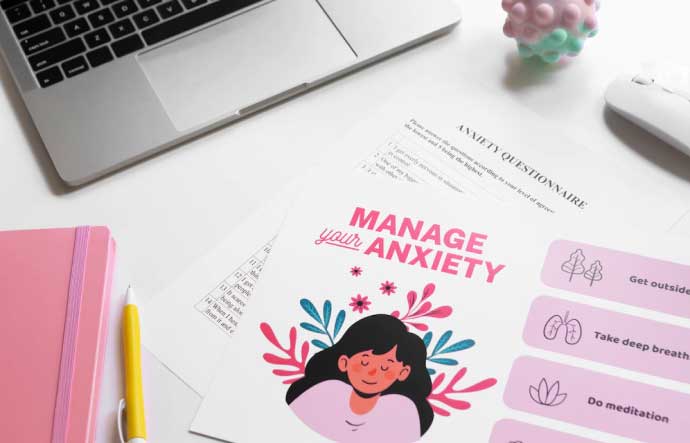Every day we experience a variety of emotions – and some of those emotions could be more potent than others. We react to different stimuli throughout our day and our lives – and one of the most common emotions humanity collectively experiences would be anxiety.
But how do we know if we are experiencing anxiety or suffering from an anxiety condition?
Getting nervous before you fly but still being able to get on the plane – would be an example of anxiety. Lots of people don’t love the idea of flying – however they’re still about to go from the UAE to the Maldives for a nice getaway.
However, if you have a severe fear or phobia of flying – flying may be associated with panic attacks, heart palpitations, nausea, and other unpleasant symptoms. If the result of the emotional stress is not being able to travel anywhere unless you reach your destination by car, it may be due to an anxiety condition.
Anxiety conditions can take a heavy toll on the body and can be linked with medical problems such as heart disease, diabetes, thyroid problems, drug misuse, and chronic pain. Sometimes anxiety can even be a side effect of certain medications,

What are the causes of Anxiety?
- Trauma
- Stress caused by illness
- Accumulation of stress over time
- Family history of anxiety
Mild anxiety and anxiety conditions often get confused. The feeling itself is common and one that everyone on this planet has experienced – probably more than a few times. However, when we talk about anxiety conditions, we are talking about individuals that are experiencing debilitating symptoms that impede with their day to day functioning and well-being.
- Sweating
- Nervousness
- feelings of imminent danger
- increased heart rate
- hyperventilation
- sweating,
- trembling,
- weakness,
- fatigue,
- avoiding anything that you feel may trigger your anxiety.
- difficult to control worry or concentrate or
- changed sleeping patterns.
How to Deal with Anxiety?
There are some ways to tackle anxiety, whether through consulting professionals or practicing some coping strategies:
- Take time for yourself doing things that you enjoy – get a massage, listen to music, or meditate.
- Make sure to eat well balanced meals (be sure not skip any!)
- Reduce caffeine and alcohol intake
- Get enough sleep
- Exercise
- Take deep breaths
- Talk to someone – a close friend or family member

When it comes to treatments of anxiety conditions from trained professionals, you can expect to engage in psychotherapy. Psychotherapy involves talk therapy or counselling with a professional that can teach you how to identify and reduce symptoms of anxiety. Cognitive- behaviour therapy (CBT) is the most effective form of therapy when it comes to treating anxiety conditions and most popular with experienced psychotherapists.
So, when is it time to consult a professional? Consider subscribing to Talk Time to connect with a licensed and experienced therapist if you feel that anxiety or worrying is interfering with work or that the anxiety has become too difficult to control. If you feel that you have other mental health concerns that are tied to your anxiety (such as depression – see our article on depression for more information), or you think your anxiety is interfering with your physical health then a consultation would be in your best interest. Most importantly, if you are encountering any suicidal thoughts or behaviours, seek emergency treatment immediately. At Talk Time clinicians can assess and formulate the ideal treatment for your case. This could be through psychotherapy, lifestyle, and stress management tips.
Sources:
Tips To manage Anxiety & Stress, Anxiety & Depression Association of America
Anxiety Disorders, Mayo Clinic





